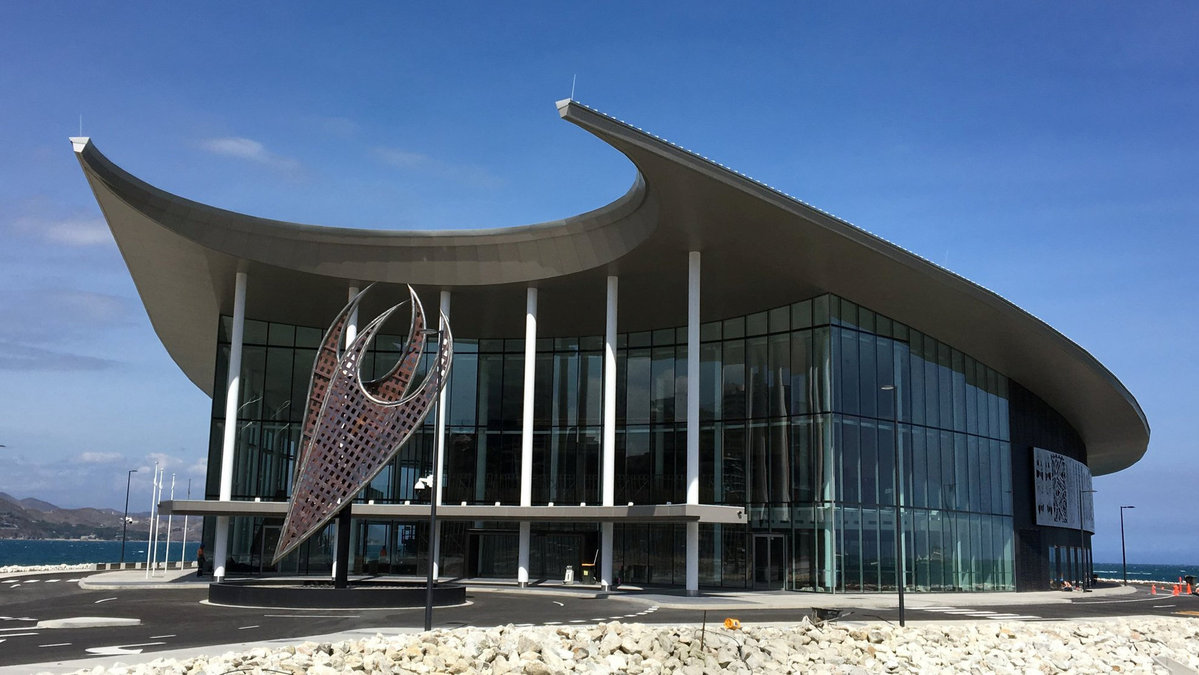Australian economist says it's time to stand up for multilateralism

A general view shows the APEC Haus building in Port Moresby, Papua New Guinea, August 10, 2018. [Photo/Agencies]
CANBERRA - It is time to stand up for multilateralism, the core principle of the Asia-Pacific Economic Cooperation (APEC), an Australian economist said.
Peter Drysdale, head of the East Asian Bureau of Economic Research at the Australian National University, made the remarks in a recent interview with Xinhua.
Pointing out the challenges now facing trade liberalization and globalization, he said they are "a big problem" not only for the world but also for the Asia-Pacific region.
Regarding the APEC meetings, which are now under way in Port Moresby, the capital of Papua New Guinea, Drysdale said, "The timing couldn't be better to have this conversation among APEC leaders."
APEC is meant to be a platform for sorting out issues and developing common approach to resolving problems, he added.
The professor noted that many issues are troubling developed economies as well as emerging economies in the Asia-Pacific region and upholding multilateralism is the key to addressing them.
"With respect, in the multilateral system, on the basis of quality, and in a way that respects the evolution of each of our economies and societies towards convergent and common objectives, that was what APEC all about," he said.
Against the backdrop of an unpredictable world economic prospect, this year's APEC economic leaders' meeting is expected to highlight regional economic integration, digital economy and structural reform, and thus to give the world economy a much-needed boost.
This year's theme of the APEC meeting is "Harnessing Inclusive Opportunities, Embracing the Digital Future." Drysdale said the digital economy and revolution associated with digital trade and commerce have huge potential benefit.
"There is a lot of potential to be realized," he said. "It is not easy, because the digital economy involves whole lot of public interest questions, as well as commercial economic questions."
Drysdale has been involved in regional economic cooperation process before APEC was born, and he had been to Beijing shortly after China began implementing the reform and opening-up policy in 1978.
Thanks to the reform and opening-up policy, people's income in China have been dramatically improved, and Chinese people have been entering into new prosperity, he said.
"China delivered through China's engagement in the international economy, cheaper goods to the world which we all benefited from. Our living standard in Australia has been lifted dramatically through this process," he added.
"It's one of the things unprecedented in human history, the things that APEC is about, making sure that we continue that process and engage more broadly in the same kind of reform in the region," he said.
Drysdale expected the infrastructural issue to be discussed at the APEC meeting so as to promote cooperation between economies that participate in the Belt and Road Initiative as well as between those participants and international organizations.
Proposed by China in 2013, the Silk Road Economic Belt and the 21st Century Maritime Silk Road Initiative aims at building a trade and infrastructure network connecting Asia with Europe and Africa along the ancient trade routes of Silk Road.
Source:Xinhua Editor:Lucky
(Source_title:Australian economist says it's time to stand up for multilateralism)